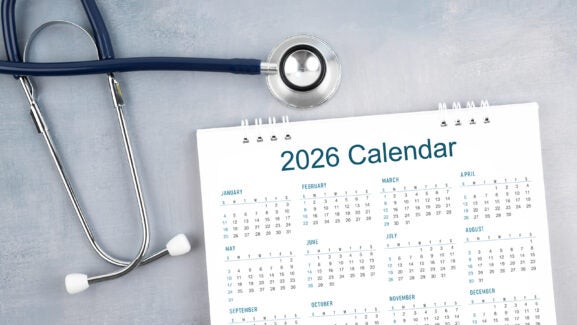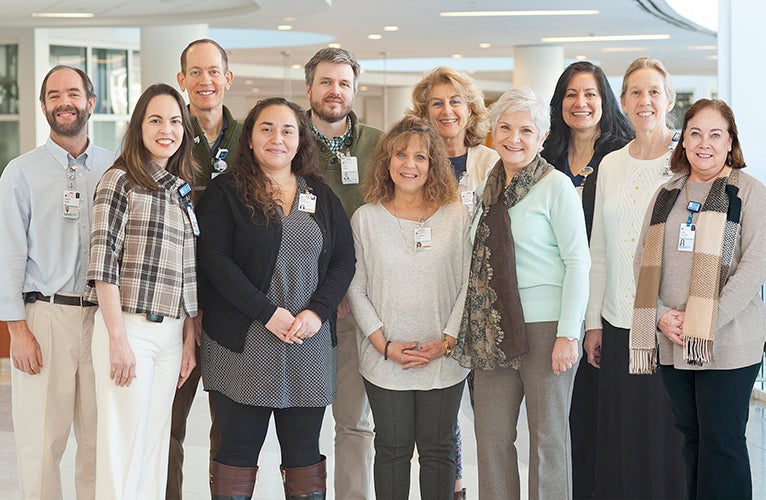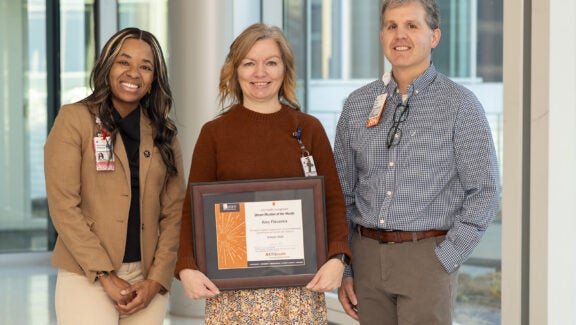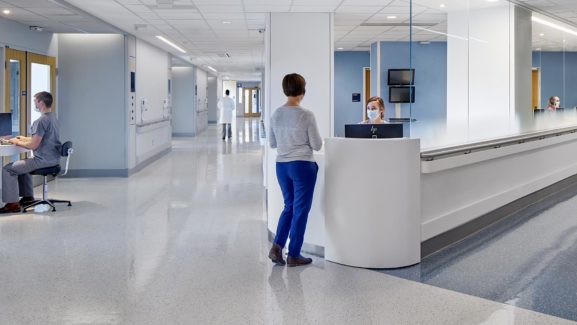

Certified Chatter: Language Assistance Services Celebrates National Certification
The UVA Health System interpreters celebrate their national certification, as of Jan. 1. Certification is granted by the National Board of Certification for Medical Interpreters and the Certification Commission for Healthcare Interpreters, which test interpreter’s skills through written and oral tests.
To provide excellence in care, UVA requires on-staff interpreters to obtain the designation. Any new hires are required to become nationally certified within 7 months of their hire date.
The team is made up of 10 Spanish-language interpreters and one American Sign Language interpreter.
The team fields 100-150 Spanish-language requests per day and another 50 requests for all other languages, including American Sign Language.
David White, Language Services Coordinator, sifts through the numerous requests and, with the help of automated criteria, assigns interpreters to patients. Patients also have 24-hour access to telephonic interpretation services when an in-person interpreter is not available.

More Than Words
Vickie Marsh, Patient Relations, Language Services, Hospitality Services Manager, noted her team does much more than allow for effective communication; their work encompasses the whole patient. When patients and providers are unable to communicate effectively, there is a huge void that the interpreters can fill. They are giving a voice to those without one and adding context to sometimes complex situations.
“The interpreters are making sure the providers understand the cultural background of their patients,” she said. “Someone from Mexico has a different background from someone from El Salvador. The way that they eat their meals, the way they take their medicine—those things vary with different countries.”
The interpreters find their work to be very rewarding. Patients not only bring their language barriers to appointments, but they bring emotions and stress, due to healthcare, economic, or immigration issues. The interpreters provide comfort to patients through the use of a common language and understanding.
“The rewards that we reap in working with these patients are just immense for me,” said Rhoda Peachey, Spanish Language Interpreter. “There is rarely a day that I don’t go home without feeling drained but fulfilled, like I knew I helped someone and made a difference in someone’s life. The relief that comes over the face of the person—they are so grateful and so appreciative of having someone that can bridge that gap and that barrier.”
Having the shared experience of interpreting has cultivated a tight-knit relationship among the interpreters, despite their vastly different backgrounds. Daniel Beiler, Spanish Language Interpreter, for example, started interpreting as a volunteer in a free clinic. Liz Cook, Sign Language Interpreter, began signing for family members when she was just a child. A majority of the females in her family are deaf. And Sylvana Fernandez-Ellauri, Spanish Language Interpreter, practiced pediatrics in her native country of Uruguay. (Read more about Fernandez-Ellauri and what it’s like to be an interpreter here: Behind the Badge: A Hospital Interpreter Linking Patients and Doctors.)
“We consider ourselves part of a family away from home,” said Raquel Garcia, Spanish Language Interpreter. “I was embraced immediately. We hope to share that supportive environment with the patients that we care for.”
Latest News




Congrads!! I have met many of you guys from the Urology Clinic. Be proud.
Way to go Language Services team! What an accomplishment!